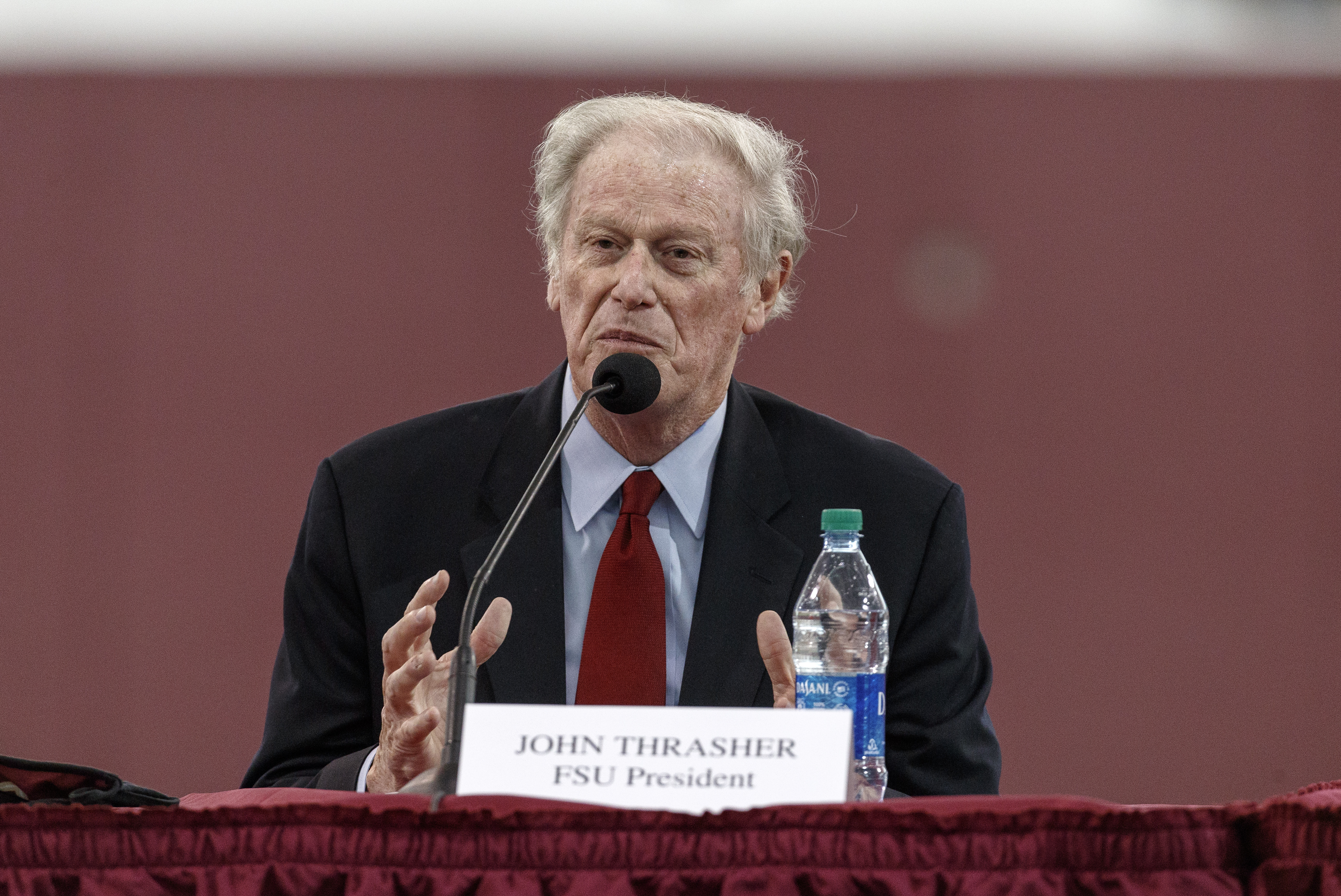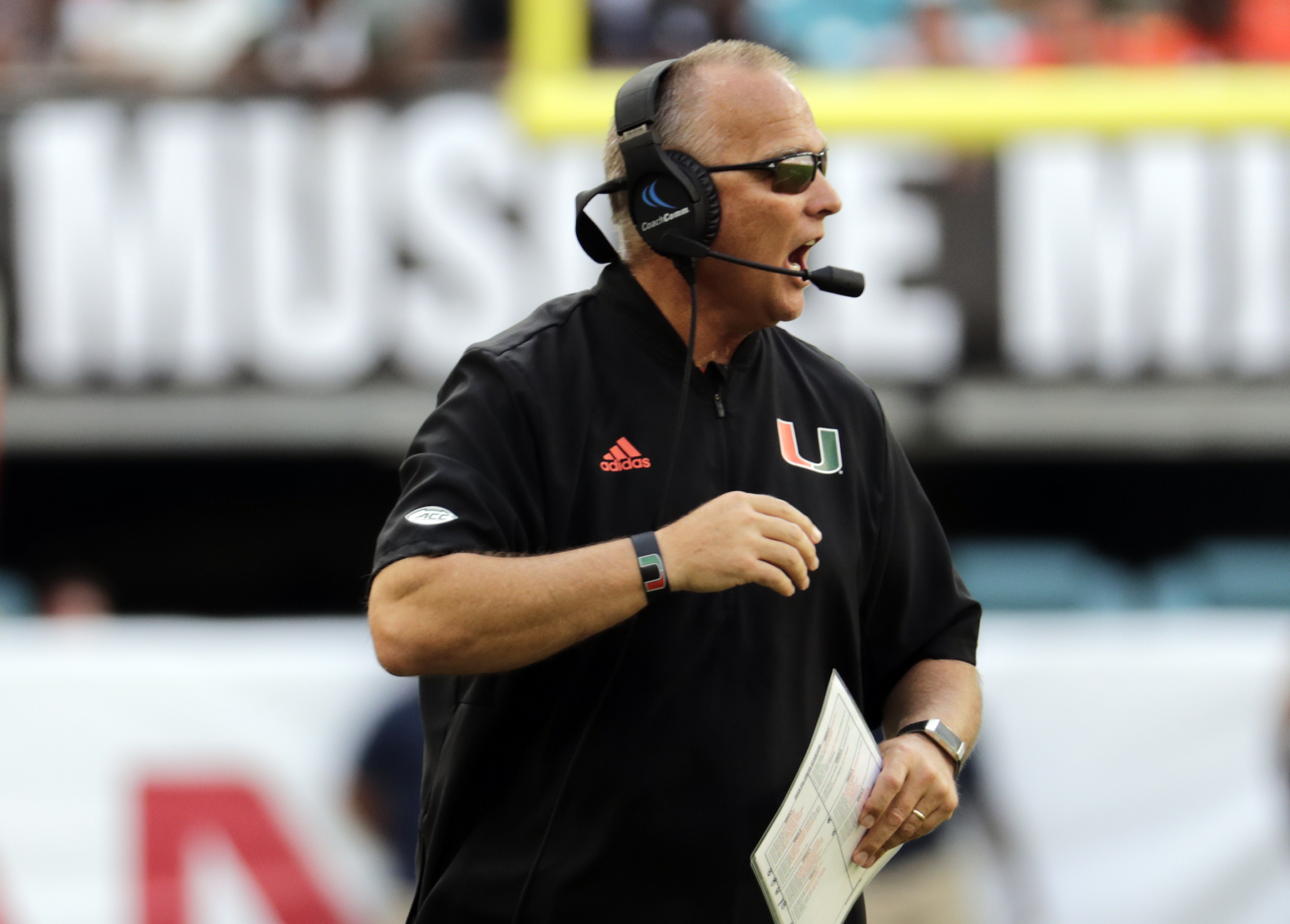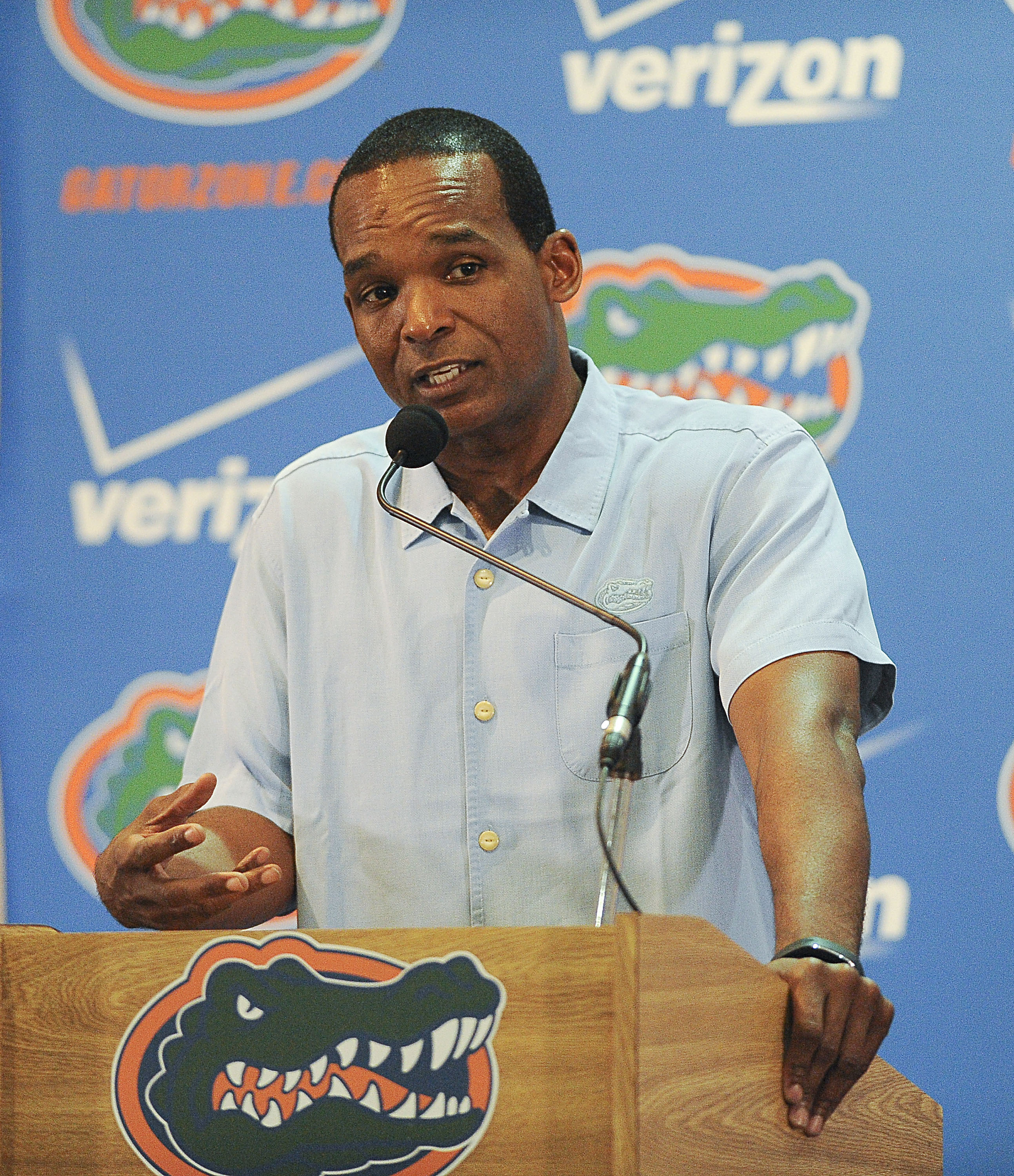FSU President John Thrasher Denies 'Untrue' Rumor That School Reached Out to SEC

Florida State University president John Thrasher denied school officials have communicated with the SEC about aligning with the conference.
"I want to be clear that persistent reports that Florida State has been in contact with the Southeastern Conference are untrue," Thrasher said Tuesday. "We have had no communication with the SEC or any representatives of the SEC."
Marc Ryan of ESPN Upstate reported Monday that both FSU and Clemson had made contact with the conference.
SEC member schools voted unanimously to admit Texas and Oklahoma into the conference ahead of the 2025-26 school year. The decision is likely to have a massive ripple effect, with a possible super-conference era on the horizon.
In the event the SEC isn't content to add just the Longhorns and Sooners, Florida State and Clemson would be obvious targets. They're within the conference's geographic region and have the kind of name recognition that would likely enhance a media rights profile.
Two big factors could prevent this from happening, at least for the foreseeable future.
In July 2016, the ACC and ESPN agreed to a media rights deal through 2035-36. Unless Clemson and/or Florida State is willing to challenge that contract in court or pay through the nose to break it, they might be staying put for a while.
There's also ESPN's perceived role in Texas and Oklahoma's move to the SEC.
The Athletic's Bruce Feldman and Sam Khan Jr. spoke to one AD, who said their exits had been months in the making and that "ESPN has been right in the middle of it."
Big 12 commissioner Bob Bowlsby also sent the company a cease and desist letter and alleged ESPN was "intentionally interfering with our business operations by encouraging other conferences to poach the members of the Big 12 and providing incentives to them to do so," per USA Today's Paul Myerberg and Steve Berkowitz.
Burke Magnus, ESPN's president of programming and original content, responded to say the allegations "are entirely without merit."
Still, ESPN benefits from the Big 12 losing its two biggest schools to the SEC, a conference that's a primary partner for the network. ESPN in December spent $3 billion to assume what's now the SEC's broadcast rights deal with CBS.
The financial advantages of Clemson and Florida State in the SEC might be negligible for ESPN because it would significantly weaken the drawing power of the ACC and ACC Network, the latter of which is an ESPN channel.
All of the hurdles standing in Florida State's way and Thrasher's comments are unlikely to quell the speculation about the Seminoles perhaps leaving the ACC behind.









